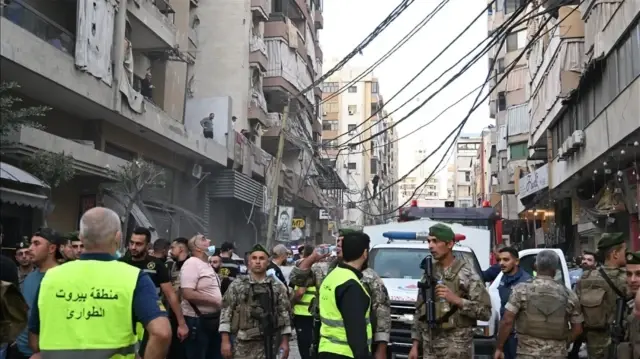Israeli strike kills senior Hezbollah commander in Beirut

An Israeli airstrike in Beirut has killed senior Hezbollah commander Ali Tabatabai and four other members of the group. The attack, which violated an existing ceasefire, resulted in five fatalities and 28 injuries according to Lebanese health authorities.
An Israeli airstrike in Beirut has resulted in the death of senior Hezbollah commander Ali Tabatabai, marking a significant escalation in tensions between Israel and the Lebanese militant group. The strike, which targeted the southern suburbs of the Lebanese capital, also killed four additional Hezbollah members and injured numerous civilians despite a ceasefire agreement that has been in effect since November 2024.
Israeli Justification and Lebanese Casualties
The Israeli military confirmed it carried out the strike that eliminated Tabatabai, whom Prime Minister Benjamin Netanyahu accused of leading "the buildup and armament" of Hezbollah. Netanyahu stated he authorized the operation based on recommendations from Defense Minister Israel Katz and Chief of Staff Eyal Zamir. According to the Lebanese Health Ministry, the attack resulted in five total fatalities and 28 injuries, highlighting the human cost of the ongoing conflict.
Ceasefire Violations and Regional Tensions
The strike represents another violation of the ceasefire agreement that was supposed to bring stability to the Israel-Lebanon border region. Despite the truce, Israel has conducted multiple strikes on Beirut's southern suburbs, with the most recent occurring in June. Tensions have been steadily mounting in southern Lebanon, with the Israeli military intensifying near-daily air raids inside Lebanese territory, claiming to target Hezbollah members and infrastructure.
Ongoing Violations and Unfulfilled Agreements
According to UN peacekeeping mission (UNIFIL) reports, Israel has committed more than 10,000 air and ground violations since the ceasefire took effect. The Lebanese Health Ministry documents at least 331 fatalities and 945 injuries from Israeli attacks during this period. The Israeli army was supposed to completely withdraw from southern Lebanon this January under the ceasefire terms but has maintained a military presence at five border outposts, further complicating the fragile security situation.
Reklam yükleniyor...
Reklam yükleniyor...







Comments you share on our site are a valuable resource for other users. Please be respectful of different opinions and other users. Avoid using rude, aggressive, derogatory, or discriminatory language.